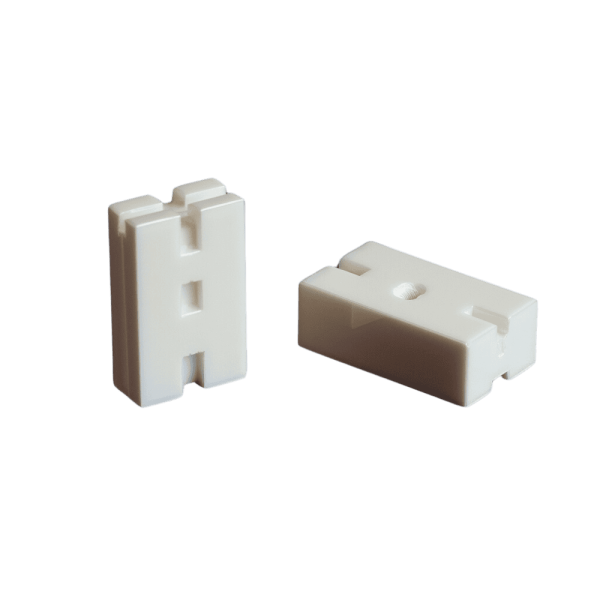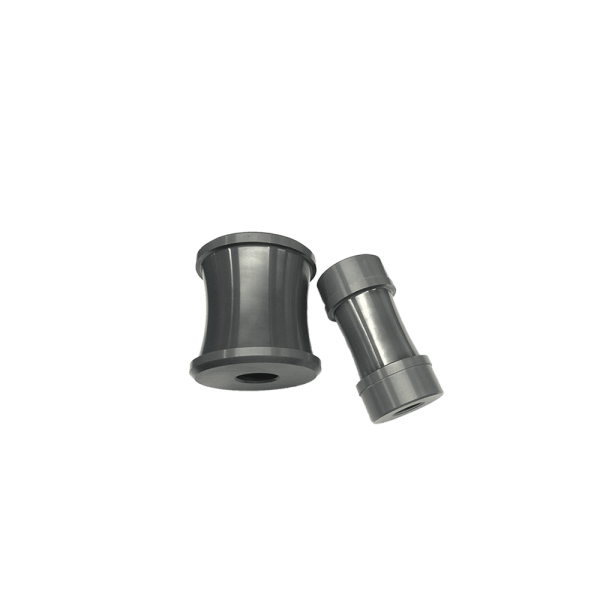Precision ceramic components are essential in high-tech manufacturing due to their unique properties such as high strength, thermal stability, and resistance to wear and corrosion. This article explores the various applications of precision ceramics in high-tech industries and how they contribute to the advancement of manufacturing processes.
Table of Contents
Introduction to Precision Ceramic Components
Precision ceramic components are engineered to meet the stringent demands of high-tech manufacturing. These components are manufactured with high accuracy and are designed to offer superior performance in challenging environments. The key properties of precision ceramics include high hardness, excellent thermal stability, chemical inertness, and electrical insulation.

Advantages of Precision Ceramic Components
- Exceptional Dimensional Stability: Precision ceramics maintain their precise shape even under extreme temperatures, crucial for maintaining tight tolerances in complex machinery.
- Superior Wear Resistance: These components exhibit minimal wear and tear, leading to reduced downtime and maintenance costs in high-volume production environments.
- Inert and Corrosion Resistant: Precision ceramics are highly resistant to chemical reactions and corrosion, ensuring consistent performance even when exposed to harsh chemicals or abrasive materials.
- Excellent Thermal Conductivity and Insulating Properties: Depending on the specific material, precision ceramics can either efficiently conduct heat away from critical components or provide superior thermal insulation for process control.
- High Strength and Hardness: Precision ceramics offer exceptional strength-to-weight ratios, making them ideal for demanding mechanical applications.
Applications of Precision Ceramic Components in High-Tech Manufacturing
Precision ceramic components form the backbone of semiconductor fabrication equipment. They are used in:
- Etch Chambers: Their high etch resistance ensures process purity and minimizes contamination.
- Electrostatic Chucks: These hold wafers securely during processing with excellent thermal conductivity.
- Bearings and Guides: Their wear resistance maintains precise movement and alignment.

Precision ceramics are used in:
- Substrates: Their thermal conductivity allows efficient heat dissipation for high-powered electronics.
- Packaging Materials: Their hermeticity protects sensitive electronic components from moisture and contamination.
- Wear Pads: Their wear resistance extends the life of critical components in machinery.
In the automotive sector, precision ceramics are used in various components, including:
- Spark Plugs: Enhance ignition efficiency and performance.
- Sensors: Provide accurate readings in harsh environments.
- Exhaust Systems: Offer superior heat resistance and durability.


Precision ceramic components are extensively used in the aerospace industry for applications such as:
- Turbine Blades: Their high thermal stability and resistance to wear ensure long-lasting performance.
- Engine Components: Provide lightweight and durable solutions for high-stress parts.
- Thermal Protection Systems: Protect spacecraft and aircraft from extreme temperatures.
The energy sector relies on precision ceramics for applications in both conventional and renewable energy systems. Ceramics are used in:
- Fuel Cells: Improve the efficiency of energy conversion processes.
- Nuclear Reactors: Provide safe and durable components for high-radiation environments.
- Solar Panels: Enhance the efficiency and longevity of photovoltaic cells.


In industrial manufacturing, precision ceramic components are used in machinery and equipment that require high precision and reliability. Applications include:
- Cutting Tools: Maintain sharpness and strength at high temperatures, allowing for faster and more precise machining operations.
- Wear-Resistant Coatings: Extend the lifespan of equipment by reducing wear and corrosion.
- Chemical Processing Equipment: Provide durable and inert components for handling aggressive chemicals.
Food and Beverage Processing
Precision ceramics play a role in:
- Mixing and Grinding Equipment: Their wear resistance and corrosion resistance ensure safe and efficient food processing.
- Pump Components: Their high strength and chemical inertness contribute to reliable fluid handling.

How Precision Ceramic Components Improve Manufacturing Processes
Enhanced Performance
The superior properties of precision ceramics contribute to improved performance in manufacturing processes. Components made from these materials can operate under extreme conditions, leading to higher efficiency and productivity.
Increased Reliability
The durability and stability of precision ceramics reduce the risk of component failure, ensuring consistent performance and reliability. This is particularly important in high-stakes industries such as aerospace and automotive, where component failure can have severe consequences.
Cost Savings
Although precision ceramic components may have a higher initial cost, their long service life and low maintenance requirements result in significant cost savings over time. Reduced downtime and extended equipment life contribute to overall cost efficiency.
Future Trends in Precision Ceramic Manufacturing
Advanced Manufacturing Techniques
Innovations in manufacturing techniques, such as nanotechnology, are expected to enhance the properties and applications of precision ceramics. These advancements will enable the production of more complex and precise components, further expanding the use of ceramics in high-tech industries.
Sustainability
The development of eco-friendly and sustainable ceramic materials is gaining traction. Researchers are focusing on creating ceramics with lower environmental impact, contributing to the sustainability goals of various industries.
Conclusion
Precision ceramic components are indispensable in high-tech manufacturing, offering unmatched performance, reliability, and cost efficiency. As technology continues to evolve, the role of precision ceramics in manufacturing processes will only become more significant. Their unique properties make them ideal for a wide range of applications, from electronics and automotive to aerospace, energy, and industrial production. By leveraging the benefits of precision ceramics, manufacturers can achieve higher efficiency, improved product quality, and long-term cost savings.
Want to learn how precision ceramic components can enhance your manufacturing processes? Contact us now for customized solutions tailored to your specific needs. Click the contact button on the right to email us to get started.

